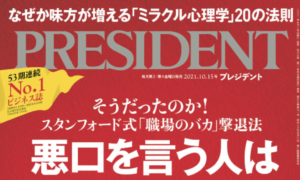
May 2022
This month’s edition of Policy Radar covers developments in Finance, Integrated Resorts and Technology. This is a preview of the full version of Policy Radar, only available upon subscription to our exclusive mailing list.
Items included in this edition of Policy Radar include:
- Monthly Focus: Asanuma Takes Over as New Head of Digital Agency
- Kishida Wants GPIF Funds to Flow into Japan’s Startups
- Bank of Japan in no Rush to Implement Digital Yen
- Integrated Resort Plan Underwhelms as only Osaka and Nagasaki Advance
- Level 4 Autonomous Vehicles to Become Legal on Japanese Roads
- Japan Plans to Put First Domestic Quantum Computer into Action
Monthly Focus: Asanuma Takes Over as New Head of Digital Agency
Ishikura Yoko in April offered to resign as the head of Japan’s Digital Agency, citing health reasons. She was replaced by Asanuma Takashi, previously the agency’s chief design officer. In his previous role, Asanuma was in charge of the thinking, design and development of the agency’s services.
Ishikura was the agency’s first chief digital officer, and she told Digital Minister Makishima Karen that she wanted to hand the top spot to the next generation now that the organization was up and running. The Digital Agency, which launched with about 600 employees, now has roughly 700 workers.
The work required of the agency remains formidable. It plans to spread the usage of the My Number card, which contains a personal identification number for each resident of Japan, while also increasing the card’s functionality. The agency also aims to create secure registries of public data that individuals, companies and governments can use at low cost for services in health care, education, disaster management and so on.
Want to Stay Informed?
Sign up for monthly updates on the latest political developments impacting your industry in Japan:
The lack of coordination could damage the LDP’s performance: Komeito is backed by the religious group Soka Gakkai, and its endorsement carries great weight with Soka Gakkai members. Moreover, Soka Gakkai members often move to competitive districts ahead of elections to support LDP candidates in tough races.
On the other hand, Komeito’s influence should not be overstated. Komeito often withholds its endorsement from individual LDP candidates for various reasons, and while this can lead to losses in some districts, it has not shaken the LDP’s hold on power.
Some in the press have speculated that the LDP aims to replace Komeito with the opposition Japan Innovation Party (JPI), which surpassed expectations in the last lower-house election. The LDP and JPI are ideologically close on issues like economic reform and amending the constitution. Additionally, many LDP members are not particularly fond of their coalition partner, as coordination in individual districts is often delicate and prone to horse-trading.
However, it is unlikely the LDP is seriously considering such a move. Despite some ideological differences, Komeito is a reliable source of votes in tough districts, and the sustainability of the JPI’s growth is still in question. Moreover, the LDP and Komeito have been cooperating since 1999, meaning the two parties have built mechanisms for communication and coordination, and a significant amount of institutional inertia is in place.
Nonetheless, intra-coalition relations seem to be at a low point, and the two parties may suffer for it in the summer election. While this could provide the opposition an opportunity to pick up additional seats in the House of Councillors, disharmony in the opposition camp may make the summer poll a particularly messy affair.
Domestic Politics:
Hayashi Yoshimasa Becomes Foreign Minister
After making a high-profile switch from the Diet’s upper house to its lower house, Hayashi Yoshimasa, a Harvard-educated former education minister, has become Kishida’s minister of foreign affairs. Hayashi’s appointment faced some opposition within the LDP: he previously served as the head of a cross-party group of lawmakers that promotes better relations with China, and some view him as too close to Beijing. Most notably, former Prime Minister Abe Shinzo reportedly told Kishida that he did not support Hayashi’s appointment.
Langley Insight: While the position of foreign minister is undoubtedly important, it is unclear how much influence Hayashi will wield over foreign policy. During the eight years of the Abe administration, policy direction was largely set by the Prime Minister’s Office, rather than the Foreign Ministry. Kishida was himself a foreign minister, and seems to have valued his experience there, so he may be willing to cede some authority to MOFA. Hayashi’s appointment also indicates that Kishida is apparently willing to put more distance between himself and Abe than many previously thought.
Kishida Kantei Takes Shape
Kishida has begun to fill out the Prime Minister’s Office — also known as the Kantei — in his own vision. Notably, he has chosen former METI Administrative Vice Minister Shimada Takashi as his chief secretary and right-hand man. Kishida has also brought on Arai Masayoshi, another former high-ranking METI official, along with Unami Hirotaki and Nakayama Mitsuteru, both former high-ranking officials at the Finance Ministry, as aides. Such a pairing of senior officials from the two powerful ministries, an arrangement the media has dubbed the “two-plus-two,” is unprecedented in the Kantei.

Langley Insight: The fact that Kishida’s new secretaries were high-ranking officials in Kasumigaseki’s two powerful ministries means that they are known entities for the rest of the bureaucracy. That will help facilitate coordination among the Kantei and other government agencies, which will in turn smooth policymaking. This will help forestall one of the criticisms that plagued the premiership of Suga Yoshihide: that the Kantei was unable to work effectively with the bureaucracy. The background of Kishida’s aides is also significant. The Finance Ministry, which typically tries to curb spending and increase tax revenue, and METI, which implements industrial policy, have historically clashed over the direction of Japan’s economic and fiscal policy. If the Kantei’s two-plus-two can agree on policy direction among themselves first, they will be able to send unified signals to the two ministries with the most influence over Japan’s economic policy.
Edano Yukio Steps Down as CDP Leader
On Nov. 12, Edano Yukio resigned as leader of the CDP to take responsibility for the party’s relatively poor performance in the Oct. 31 lower house election. The party will hold an election on Nov. 30 to choose his successor. Izumi Kenta and Osaka Seiji have both said they would stand for the position, and Ogawa Junya and Ogushi Hiroshi have indicated they are interested in the job. Other names have appeared in the media as possibilities, including Nagatsuma Akira and Mabuchi Sumio.
Langley Insight: Most observers agree that the focus of the CDP election will be its relationship with the JCP. The two opposition parties unified their candidate lists to an unprecedented extent, but they were unable to make significant headway against the LDP. Conservative members of the CDP and Rengo, the labor union umbrella organization and the CDP’s main institutional backer, are cool toward the alliance. More progressive party members want to maintain the relationship. The winner of the party’s leadership election will face a difficult balancing act — cooperation between the two parties proved effective in the Tokyo Metropolitan Assembly election in July, but discontented conservatives could leave the CDP and split the opposition. Regardless of whether the CDP keeps its relationship with the JCP, the opposition still needs to find a strategy to break the LDP’s dominance. Unified candidate lists may only be a necessary but still insufficient condition.
Foreign Affairs:
Japan SDF Activity Grows in Indo-Pacific
A Japan Maritime Self-Defense Force ship escorted an Australian vessel during bilateral naval drills that took place south of Shikoku. The action marked the first time that a MSDF vessel protected ships from a country other than the U.S. Legally, the SDF can take such actions thanks to the 2015 security legislation, which enables the SDF to protect other countries’ weapons and equipment during noncombat situations.
Langley Insight: Kishida has revealed little about the foreign policy he intends to pursue, apart from conventional statements about the importance of the Japan-U.S. alliance. After eight years of Abe, however, the groundwork has been laid for stronger cooperation with other democratic nations in the Indo-Pacific. Considering the region’s increasingly tense security environment, Tokyo is likely to continue working toward greater cooperation in frameworks like the Quad.
NHK Polling:
Kishida’s support rate enjoyed a modest bounce in the aftermath of the election, as could be expected after his party beat expectations. His administration has only just launched in earnest, but it appears that the public does not associate him with the scandals of the Abe era or the missteps of the Suga government. However, judging from the previous administrations, it will be difficult for Kishida to preserve his support rate at this level until next summer’s upper house election, his next big political challenge. Kishida has yet to be tested as premier, and it remains to be seen how he will respond when he or members of his government act or speak in a way that draws public ire.
Cabinet: 53% support (+5 pp), 25% disapprove (-2 pp) Parties: LDP 39.5% (-1.7 pp), CDP 8.2% (+2.1 pp), Komeito 4% (-0.1 pp), Ishin 7.3% (+5.5 pp), JCP 2.1% (-0.6 pp), DPP 1.2% (+0.5 pp)

Langley Esquire provides a full range of government & public affairs consulting services, including policy and media monitoring, stakeholder mapping, and government relations. We craft unique solutions tailored to meet our clients’ needs across industry sectors.
If you need support in political analysis or engagement with key government stakeholders, contact us to learn more about what we can accomplish for you.
Be the First to Receive Future Updates!
See Related Content:

Timothy Langley Featured on PRESIDENT Magazine
CEO, Timothy Langley discusses business negotiation skills in an interview with PRESIDENT Magazine. The interview is available in the September issue of PRESIDENT.

Digital Agency Overview: Japan’s Digitization Push Gets in Gear
The Digital Agency has been officially launched with the aim of updating the country’s outdated digital infrastructure. Will this time be different?

Going Digital: The Future of Healthcare in Japan
In this series of articles, we examine the Japanese government’s push to transform the private sector into a technological powerhouse.
